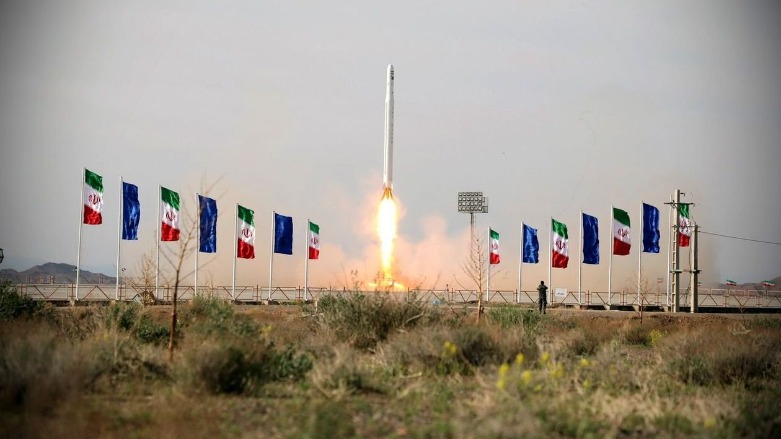Russia to provide Iran advanced spy satellite: report
This spring, Russian experts “traveled to Iran to help train ground crews” on how to operate the satellite, The Washington Post reported.

WASHINGTON DC (Kurdistan 24) – “Russia is preparing to supply Iran with an advanced satellite system that will give Tehran an unprecedented ability to track potential military targets across the Middle East and beyond, according to current and former US and Middle Eastern officials,” The Washington Post reported on Thursday.
“I can’t confirm those reports,” Pentagon Press Secretary John Kirby said on Friday in response to a question from Kurdistan 24. “I mean, I’m certainly not going to speak about intelligence matters.”
The Post’s story cited three current and former American and Middle East officials as sources, so it has significant credibility—even as Russian President Vladimir Putin dismissed it as “fake news.”
Iran’s ‘Malign Activities’
Although Kirby would not comment on the Post report, he did detail the activities of Tehran’s government that most concern the Pentagon.
“What I can say,” Kirby continued, “is that we’re going to remain focused on the malign activities of Iran in the region—and sometimes beyond the region,” citing the Iranians’ “increasing ballistic missile capabilities; their support to terrorist organizations; [and] their efforts to impede freedom of navigation in and around the region.”
“All those things are at the forefront of the [Defense] Secretary’s mind, as we think about our operations in the Central Command region,” Kirby said, and they will “remain a key focus for the Secretary moving forward.”
Moreover, a new weapons delivery system has appeared in the arsenal of Iranian-backed militias in Iraq and elsewhere, and it has CENTCOM Commander, Gen. Frank McKenzie, seriously concerned.
“We are seeing pressure from Iranian-affiliated militant groups that want to push us out of Iraq, and the latest manifestation of that has been the use of small unmanned aerial systems, or drones,” McKenzie told journalists last week. “Some of them are very small, some are a little bit larger–-all can be very lethal.”
Missile defense systems, like the Patriot, can detect rockets and missiles, but they cannot detect drones—and, therefore, cannot defend against them. Moreover, drones often carry cameras, allowing the operators flexibility and precision, as they guide the drone that they control toward a target.
The first such drone strike occurred on April 14 and targeted a US facility at Erbil Airport in the Kurdistan Region.
A month later, toward the end of its 11-day war with Israel, Hamas, which is supported and supplied by Iran as well, also used drones for the first time in an apparent attempt to evade Israel’s Iron Dome rocket defense system.
Capabilities and Danger posed by Russian Satellite
The Kanopus-V is the spy satellite that Russia will provide Iran, according to the Post. It carries a “high-resolution camera” that would provide Iran a capability for “continuous monitoring” of potential targets in Gulf states, like Saudi Arabia, Bahrain, and the United Arab Emirates (UAE), as well as “Israeli military bases” and “Iraqi barracks that house US troops.”
Although the Kanopus V is classified as a commercial satellite, it could also be used for military purposes.
Senior officers from Iran’s Islamic Revolutionary Guard Corps (IRGC) made “multiple trips to Russia,” starting in 2018, to negotiate the deal, while this spring, Russian experts “traveled to Iran to help train ground crews” on how to operate the satellite, the Post said.
Iran has long tried to field its own spy satellite, but has had little success. “Iran has sent several short-lived satellites into orbit and in 2013 launched a monkey into space,” The Times of Israel reported.
But “having this kind of on-call data feed”—which the Kanopus-V could provide—“may open up technical and operational possibilities that the Iranians previously didn’t have,” Dr. Christopher Ford, Assistant Secretary of State for International Security and Nonproliferation, told the Post.
“It sounds like a significant upgrade, not just a slight slide up the slope in terms of potential military applications,” he said.